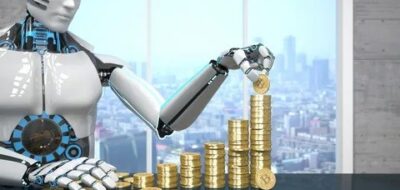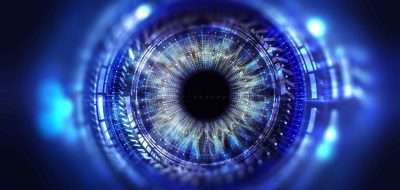Today, the world’s economies increasingly rely on the production of intangible goods. So, what should businesses do to become more competitive in an information-driven world? And, just (if not more) importantly, how can we – consumers, individuals – benefit from the huge data sets about us that businesses increasingly store and utilize? Our data for sale?
Not that we aren’t, already, benefiting. I can get anywhere by plane within a few hours. Flight has never been so accessible and affordable. But that’s not just about jet engines and the Bernoulli effect. Think how much data needs to be sent, received and processed to make my journey easy. There are online searches, airline advertisements, price comparisons, flight bookings, ticket purchases, credit card transactions, promotions, transfers, connections, and luggage checking and handling. All that adds up to huge data sets – what we call big data.
We tend to forget about all that data as we go about our lives but hardly anyone would be surprised by IDC’s prediction that the digital universe – as measured by the volume of data created, processed, sent and delivered – will reach 180 zettabytes by 2025. That is 180 followed by 21 zeros. Already, the amount of information that surrounds every one of us every day equals the total volume of information that touched an individual over the entire twentieth century.
What does this mean to us now and how will it affect our lives tomorrow? Will we create standards for data use and sharing that protect our privacy? Will we be able to tell credible information from false? As customers and individuals, will we be able to manage our personal data? Will we be able to profit by it?
Can you sell yourself? Are you for sale?
Our digital identity is comprised not only of our date of birth, address, phone number and e-mail address but increasingly information about our work, interests, health and finances. Consider digital wallets. These take a variety of forms, from digital cards to applications on our phones. They store our transactions, accounts and often our habits and shopping preferences. They contain a treasury of knowledge. Who is this data shared with? Commonly, the wallet makers, who aggregate and anonymize and subsequently sell them. Do we, the creators and putative owners of this data benefit in any way? Not much, apart from the bargains we may receive in the form of ubiquitous ads.
But innovative service providers may enable consumers to capitalize on the information that today generates profit only for businesses. Turning the tables could produce interesting results.
One company that has taken this approach to the roles of data selling and buying is Datacoup. According to its website, its mission is to change the current model by empowering users to leverage (and profit from) their own data. Datacoup enables its paying customers to create data profiles on its website. Datacoup then makes the information in the profile available to buyers, mainly banks and insurance companies, which pay the individual for access. A profile’s value rises or falls depending on its content.
Is this the tip of a new spear? For this inverted model to spread, we would have to change our habits and perhaps be less inclined to give our data away for free. Major legislative solutions and the willingness of the corporate world would also be necessary.

Internet of Things, or a data revolution
We are flooded with data, valuable and worthless, fake and real, needed and unnecessary. And now even more terabytes of data will be created independently of us through the Internet of Things. Assembling sensors, vehicles, robots, industrial and home appliances into a single digital organism will trip off an avalanche of new information.
A global network of collaborating devices is something very new. We’ve never seen an intelligent organism grow independently of humans, feeding on the information that it itself generates. How does one control this process? Is it controllable? The Internet of Things may one day challenge legal systems, forcing them to deal with mushrooming information whose owners will be largely anonymous and difficult to identify.
Information must cooperate
In order for companies to meet the demands of rapidly-changing markets, boards must abandon their habits and traditional approach to business. In the business world, modern technologies are not mere toys for IT units, which are happy to have managed to pursuade decision-makers to buy a specific application, algorithm or neural network. New technologies are vital for companies’ survival. After all, it is technology that allows a company to quickly assess whether its marketing, product or sales strategy is working.
There is no disputing the growing value of readily available and processable information sets. To convince those in charge to invest in the latest technology, including artificial-intelligence-based mechanisms, it is sometimes best to resort to the arguments of futurist. After all, futurists can create business scenarios (use cases) or data usage models that rely on modern technologies, those that, although are still in their infancy today, may well develop and play a huge role in the future. What technologies are those? Think of the possibilities of directly connecting the human brain with machines to eliminate the most ineffective human-machine interface, namely the computer keyboard. Compared to this, virtual and augmented reality (which is so popular today and is taking the entertainment or manufacturing industries by storm) looks like a mere toy.

The drive to simplify
What should businesses do to thrive in an environment dominated by huge data sets? First, they must make their employees realize that the ability to process, collect, share, secure and monetize information or DATA will increasingly affect an organization’s market position and value. Therefore, modern data management is a key challenge faced not just by IT or technolody/digital units but by the business itself. It is equally important to train employees to use data purposefully. For now, “machine learning” and “deep learning” are vague concepts in corporate boardrooms. And yet, it is these technologies that will determine the organization’s ability to function. In today’s business world, modern technologies are the only way companies can tell whether their marketing, product or sales strategy is working, and what to do if it’s not.
Related articles:
– Automation will not destroy all jobs
– Will quantum computers doom the blockchain?
–Artificial intelligence is a new electricity
– A machine will not hug you … but it may listen and offer advice










John Accural
The gist of the article is that it seems that thanks to some research with A.I., it seems likely that the brain probably learns by considering the all the experienced results of a particular action at the same time, and weighs the probability of each outcome before taking an action. This is different from the widely held theory of learning that holds that all past outcomes are averaged into one value before taking an action.
Mac McFisher
It will still be the United States. Deep Mind is so far ahead of anything that the Chinese government has, and their rate of advancement only seems to be growing. Given China’s demographic problems and overall stagnating growth, I don’t see how they can catch up.
AKieszko
What most people seem to forget, is that neural networks are just big, refined decision trees. A long series of yes/no from input to decision. Our brain is litterally just a complex series of if/else. Although the plasticity and its vastness and feedback loops allows us to grasp extremely complex concepts.
After all, what does it mean for a human to be intelligent ? As I recall, atoms and laws are in motion, and that’s all, choices are not really choices, and in that context, are we that different from artificial intelligence ? Biology had millions of years to optimize our brain, technology just needs to catch up.
Oniwaban
Interesting post. “Since self-learning machines improve over time, assistant devices will become increasingly more competent.” Do you think that this is a matter of 2-3 years or we need to wait like 5-10 years for bots’ improvement? I used bots in a financial industry (as a customer) several times and it always ended with a need of human support.
TomK
Norbert – thank you for sharing great insights!
JohnE3
Great read Norbert
John Macolm
Not everyone can live with having no humans involved in the drawing up and conclusion of AI. The approach of skeptics resembles that of drivers who swear they will never get into an autonomous vehicle or allow an IT code make decisions concerning road safety.
PiotrPawlow
With the possibilities so endless it is hard for us mere mortals to project how AI will be embedded in our industries.
Acula
In the expanding world of the Internet of Things, entrepreneurs would be better off to remember two old adages: Resistance is futile, and if you can’t beat them join them. No matter its predicted benefit, the notion of change is hard to accept because people are settled into comfort zones and face resistance based on the status quo. Profiting from your information might be the best selling point. After all, everyone else will benefit from your data. Why not you?
Mac McFisher
As a software solution, an AGI would be agnostic to the underlying hardware. So, it could be a typical binary processor, or even a multi-valued logic processor. Ultimately, from a computational perspective, both approaches are functionally the same, even if expressed differently. An AGI would abstract away these differences through the use of an agnostic high level language, typically natural language, which could be compiled on any system.
But, if an AGI or human comes up with an approach which resolves DeepThought’s Paradox, that may lead to a radically different notion of logic and, ultimately, hardware, AGI designs and approaches to reasoning and classification. As such, there is a possibility that the hardware may not be based on current binary, multi-valued logic or even quantum computing techniques.
The implications could be huge and far-reaching. So, this is certainly the area where all resources are going at the moment.
John Accural
Properly handled data collection has its uses. If you have health apps on your devices it is in your interest to share the collected data with your physician if you want your health to improve. If you have homework on your devices it is in your best interest to share the data with your teacher if you want your grades to improve. If you want to air your opinion publicly you have to share that opinion (which is part of your digital data) with an online forum or other form of social media.
Harari even nods to the reality that we have legitimate reasons to share data; we have to go to school, go to work, take care of the kids, and/or look after elderly parents. Each of those activities require a sharing of data not just between the person and work/school/doctor but also between doctor and work/school.
Though email service is provided free it is a costly service to maintain. The companies that provide such a service have to make money somehow or they will not be around. Same goes for text message services. How many texts would you send if you had to pay 10 cents for each one? How many emails would you send for the same cost? That was once what it cost per text and per email when each feature was marketed for public use.
Andrzej
Data is a new fuel for this world
Check Batin
🙂
Adam Spark Two
Scary
Mac McFisher
Great post Norbert Biedrzycki and thanks for sharing
Check Batin
Saying “Google band artificial intelligence” is misleading.
First of all, most people interpret a ban to be a prohibition of something, but Google is not a government agency and therefore can’t “ban” anything outside of their platform.
If they did “ban” something within their platform (Gmail, Adsense, YouTube) the title would be understandable.
But they simply decided to not pursue further development of their AI for use within the US military.
NorTom2
Great. In the expanding world of the Internet of Things, entrepreneurs would be better off to remember two old adages: Resistance is futile, and if you can’t beat them join them. No matter its predicted benefit, the notion of change is hard to accept because people are settled into comfort zones and face resistance based on the status quo. Profiting from your information might be the best selling point. After all, everyone else will benefit from your data.
CaffD
Despite widespread references to ‘responsible AI’, responsibility and accountability are rarely defined. Nonetheless, specific recommendations include acting with ‘integrity’ and clarifying the attribution of responsibility and legal liability, if possible upfront, in contracts or, alternatively, by centering on remedy. In contrast, other sources suggest focusing on the underlying reasons and processes that may lead to potential harm.
Dzikus99
The AI systems are capable enough to reduce human efforts in numerous areas. To conduct different operations in the industry, many of them are using artificial intelligence to create machines that perform various activities regularly. The artificial intelligence applications help to get the work done faster and with accurate results.
Peter71
Some experts suggest that AI applications cannot, by definition, successfully simulate genuine human empathy and that the use of AI technology in fields such as customer service or psychotherapy was deeply misguided. Few experts are also bothered that AI researchers (and some philosophers) were willing to view the human mind as nothing more than a computer program (a position is now known as computationalism) which imply that AI research devalues human life.
AKieszko
What if you include some recursion and a certain degree of randomness? What if you include the ability to learn?
Mac McFisher
AI has nothing to do with human sentience lol, the closest we have come to whatever you have in mind is Neuralink, and that too functions as an alternate starting point since all it does is digital backup your memories, not your sentience.
John Accural
Still can’t get my head around my brain calculating stochastic outcomes when I have trouble with basic mental multiplication. So if I decide to have ice-cream today, you’re saying I would calculate the rewards of taste and nutrition and subtract the weight gain aspects simultaneously rather than calculate at once if ice-cream is good for me. Did I get that right?
TonyHor
Great stuff. Love your articles 🙂
Mac McFisher
I for one welcome out new AI robot overlords